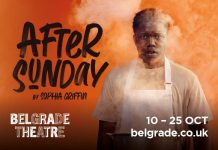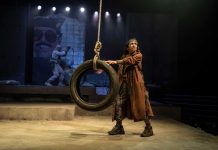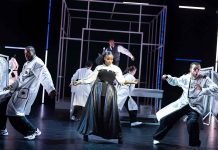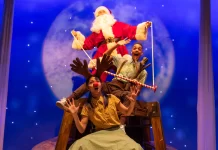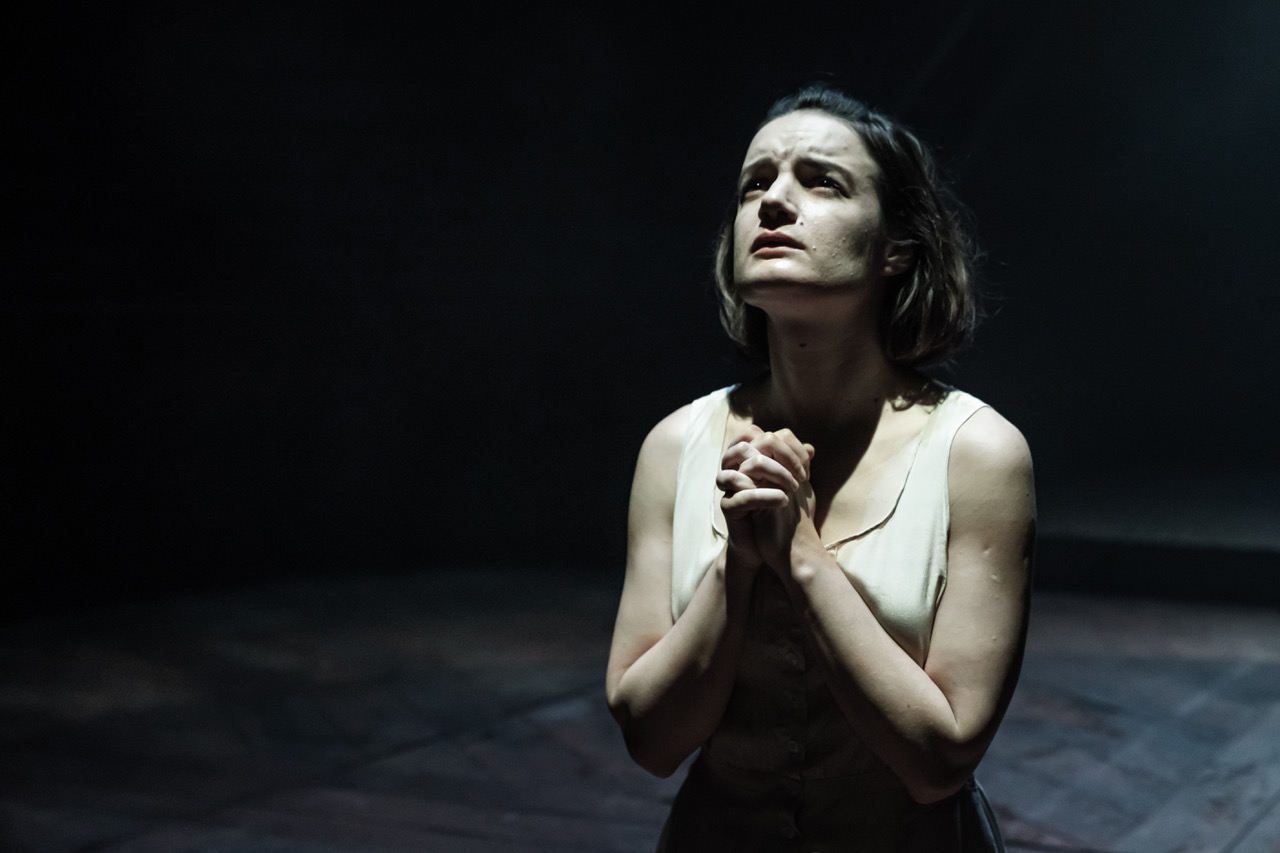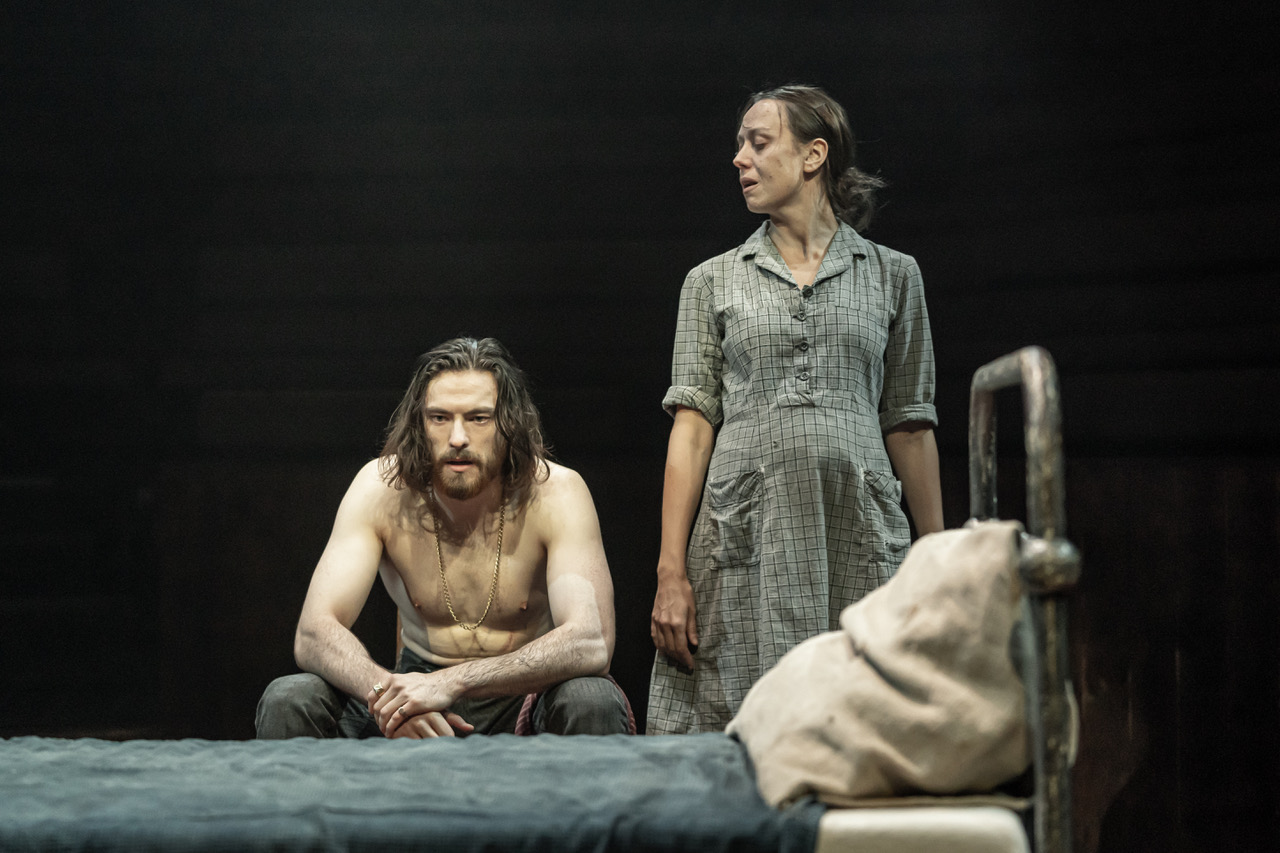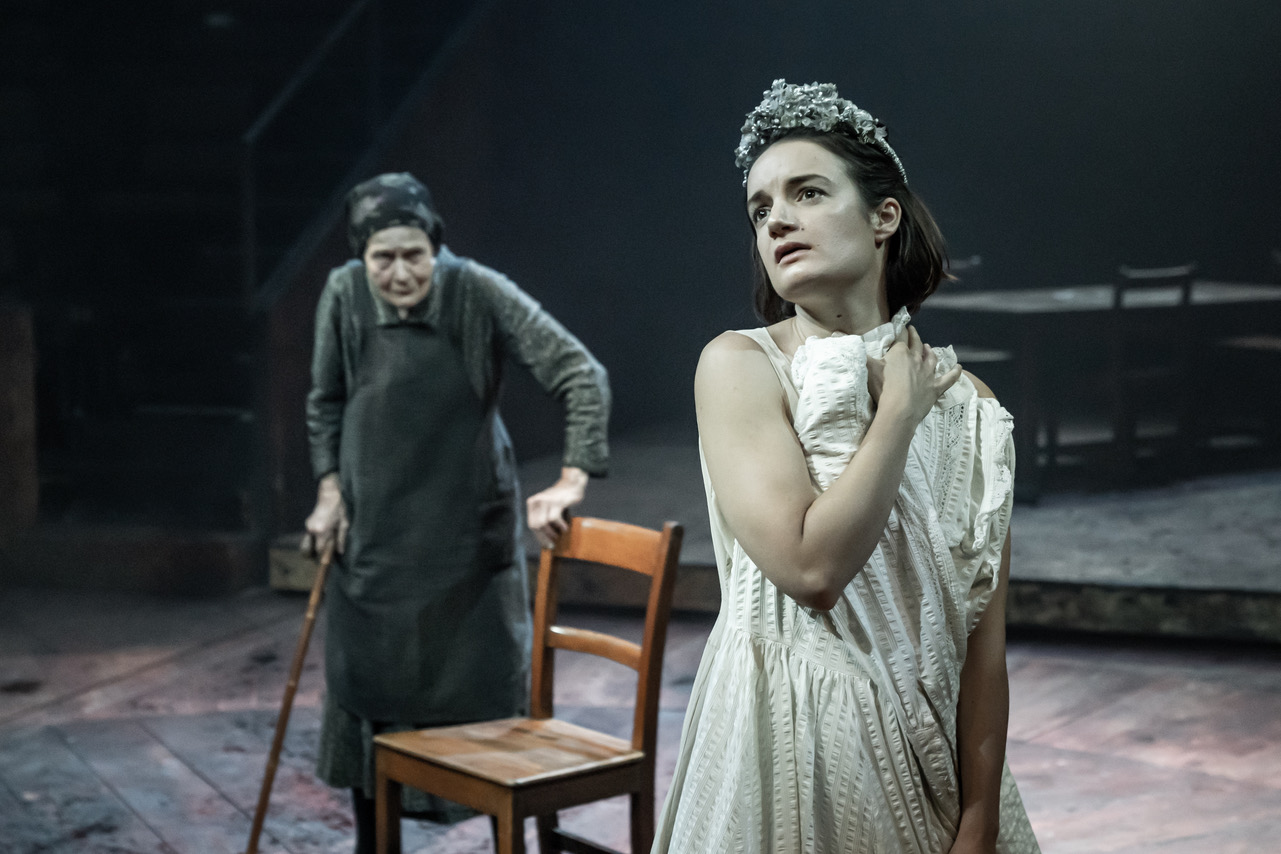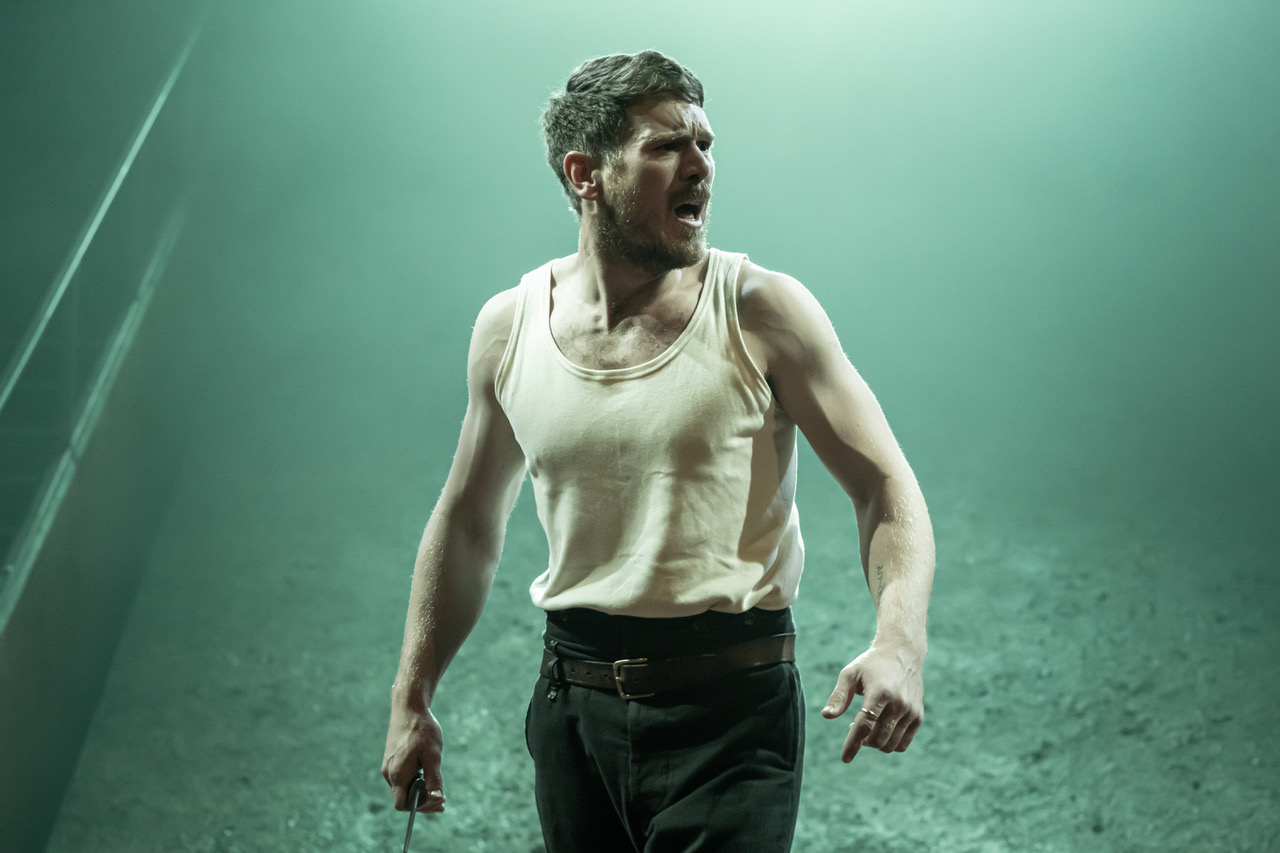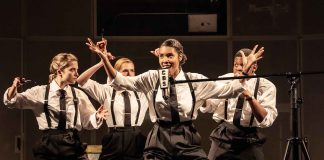In Blood Wedding, Director Yael Farber breathes brutal intensity into a production which is as visceral as it is surreal. Farber, who is also known for her productions at the National Theatre (the blistering Les Blancs and the less successful Salome), enjoys exposing the veins of a work and its rawest truths. In Blood Wedding, she captures the mood of Federico Garcia Lorca’s brooding 1930’s tragedy using Marina Carr’s adapted script blends Irish language with Spanish names to recall the rural language of Andalusian countryside where Lorca’s play was originally set.
The interweaving of Irish brogue and the sorrowful Spanish singing of the Moon haunts the play, giving it an otherworldly feel, while still being steeped in the rural setting.
Lorca’s love and familiarity with the countryside is clear in the detailed exchanges of everyday life but his version every day is also steeped in the blood ties and the horror of what has gone before. The ancestors and their spiteful legacies are never far away from the living in Blood Wedding.
The play opens dramatically with a pool of blood centre stage and then cuts to a mother and son’s exchange about his future bride. We learn that the groom’s father and older brother had been killed by the family of a man (Leonardo) who was once involved with the groom’s bride to be. The stage is set, and from there the play works towards its bloody conclusion, though it lacks the pacey plot that the audience would normally associate with tragedy.
In many ways the play is centred around the female figures, the bride played by Aoife Duffin, the wife of Leonardo (Scarlett Brookes), the mother (Olwen Fouéré) and even the housekeeper (Anne Firbank )are all women stuck in situations not of their own making. When the father tells the bride, “You made your choice”, the audience cannot help but wonder what choice she, or indeed any of them, had. The arrival of the fate towards the end of play echoes that theme. There’s a sense that it’s all to be repeated again and again – the blood ties, the brutality, the violence.
The performances were solid
The interweaving of Irish brogue and the sorrowful Spanish singing of the Moon (who is embodied as a character dressed in white played by Thalissa Teixeira) haunts the play, giving it an otherworldly feel, while still being steeped in the rural setting. The land, like the fates of the characters in the play, cannot be escaped. It is ever present as a theme and the characters regularly refer to the mountains and the landscape.
As an ensemble piece, the performances were solid with standout performances from the crones, particularly the groom’s mother, Olwen Fouéré. And the Moon’s plaintive pitch is heart-stoppingly beautiful.
Not all the surrealist aspects work well. There’s a scene with the woodcutters describing the actons of the play which interrupts the play’s intensity which is never quite recovered. And at times, it can seem overstylised.
The play still strikes hard. Lorca’s explores the brokenness of rural Spain with Blood Wedding -His love for the country and contempt for its dysfunctions on easy display. The play (written in 1932) highlighted the divisions within society before the Spanish Civil war started in 1936. In a modern world where division is driving us all further apart day by day, Farber via Lorca provides a necessary and meaningful warning about where division can lead.


